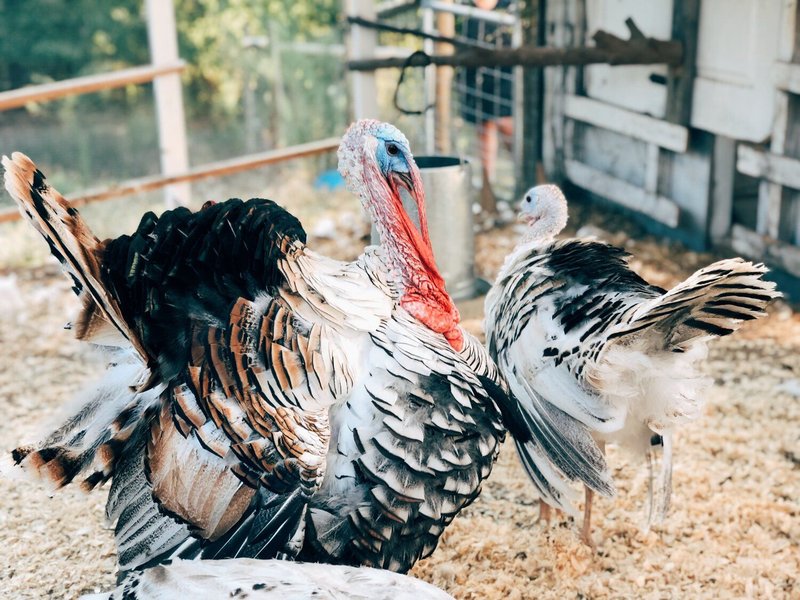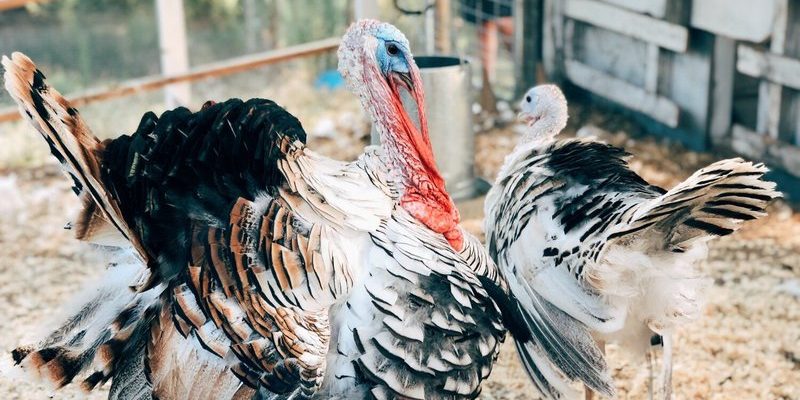
Now, before you rush off to find a turkey and name it after your favorite food, let’s explore the ins and outs of having a turkey as a pet. Just like any other pet, there are both pros and cons to consider. From their quirky personalities to their specific care needs, raising a turkey can be a rewarding experience. But, let’s face it—it’s not all sunshine and feathers.
Understanding Turkeys as Pets
If you’re thinking about keeping a turkey, you might wonder what makes them tick. Turkeys are social creatures. They thrive in flocks, which means they can get a bit lonely if kept alone. So, if you decide to raise one, it’s a good idea to get at least two. Think of them as the introverts of the bird world; they enjoy a bit of company. Plus, they can be quite affectionate and have unique personalities, which can make them great companions.
However, you should also know that turkeys can be noisy. Unlike your average cat, they have a range of vocalizations. Some can gobble like pros, while others might cluck or make other sounds. Their vocal antics can either bring joy or irritation, depending on your perspective—and your neighbors. So, it’s essential to consider whether a turkey fits your living situation.
The Pros of Keeping a Turkey as a Pet
Let’s dive into the good stuff first! Here are some compelling reasons to bring a turkey into your home:
- Unique Companionship: Turkeys have quirky personalities and can be quite endearing. They can recognize their owners and may follow you around like a loyal dog.
- Low Maintenance: Compared to some pets, turkeys are relatively low maintenance. They mostly eat grains, fruits, and vegetables and require a safe outdoor space.
- Educational Experience: Keeping a turkey can be an educational experience for kids and adults alike. You can learn about their behavior, habitats, and diets.
- Natural Pest Control: Turkeys love to forage. They can help reduce pests in your yard by eating insects and small weeds as part of their diet.
Honestly, having a turkey can be quite the conversation starter! Imagine sharing stories about your pet turkey at the next family gathering. The tales of its quirky habits might overshadow your cousin’s latest dog antics.
The Cons of Keeping a Turkey as a Pet
Of course, it’s not all sunshine and feathers. There are a few drawbacks to consider as well:
- Space Requirements: Turkeys need ample outdoor space to roam and forage. If you live in a small apartment, this might not be feasible.
- Loneliness: As mentioned earlier, turkeys thrive in flocks. If left alone, they can become stressed or depressed, which can lead to health issues.
- Noise Levels: Their vocalizations can be loud. If you live in a neighborhood with noise ordinances, a turkey might not be the best fit for you.
- Health Considerations: Like all pets, turkeys can have specific health needs and potential diseases, requiring regular vet visits and care.
Here’s the thing: if you’re not ready to commit to the unique care a turkey requires, it might feel a bit overwhelming. It’s essential to weigh these cons against the pros before making your decision.
Housing Requirements for Pet Turkeys
If you’re still interested in becoming a turkey parent, let’s talk about housing. Turkeys need a secure outdoor space to live. Here’s what you should keep in mind:
1. A Safe Coop: Just like chickens, turkeys need a coop to stay safe from predators like foxes or raccoons. Make sure it’s sturdy and well-ventilated.
2. Outdoor Space: They require plenty of room to roam. A generous backyard or a small farm is ideal, as they love to scratch the ground and explore.
3. Fencing: Strong fencing is crucial. Turkeys are curious and can get themselves into trouble if allowed to wander off too far.
4. Comfortable Bedding: Provide straw or wood shavings for comfortable bedding inside the coop. This will keep them warm and cozy, especially during colder months.
Keeping these housing requirements in mind will ensure your furry friend lives a happy, healthy life.
Feeding Your Pet Turkey
Feeding your turkey the right diet is an essential part of pet ownership. A balanced diet will keep them healthy and vibrant. Here’s what to include:
– Grains: A good quality turkey feed, formulated specifically for them, should be the base diet.
– Fresh Fruits and Vegetables: They enjoy fresh produce, so feel free to toss in some leftovers or seasonal veggies.
– Clean Water: Always provide fresh, clean water. Hydration is vital for their health.
You might be wondering, “What about treats?” Turkeys love kitchen scraps, but avoid feeding them anything toxic, like chocolate or avocado. Keeping their diet varied and nutritious will ensure your turkey lives a long, healthy life.
Health Care and Maintenance for Turkeys
Regular health care is essential for pet turkeys. Here are some key points to consider:
1. Veterinary Care: Find a vet experienced with poultry. Regular check-ups can help catch any health issues early.
2. Vaccinations and Worming: Just like any pet, turkeys need vaccinations and regular worming to stay healthy.
3. Observation: Keep an eye on their behavior. If they seem lethargic or show signs of illness, it’s time to consult the vet.
Maintaining their health may seem like a lot, but it’s all part of being a responsible turkey owner. Just think of it as part of the learning experience!
Deciding whether to keep a turkey as a pet really comes down to your lifestyle and preferences. If you have the space, time, and willingness to care for these unique birds, they can be incredibly rewarding companions.
However, if you’re looking for a low-maintenance pet that doesn’t require as much attention and care, maybe consider a cat or a fish instead. Remember, turkeys are not your average pet. They come with specific needs and a vibrant personality that could either be a perfect match for you or a bit too much to handle.
Ultimately, whether you choose to invite a turkey into your home or not, just remember that every pet you bring into your life deserves a loving, supportive environment. If you think you’re ready to embrace the quirks and joys of turkey companionship, then go ahead—turkeys might just be the unique pet you never knew you needed!

